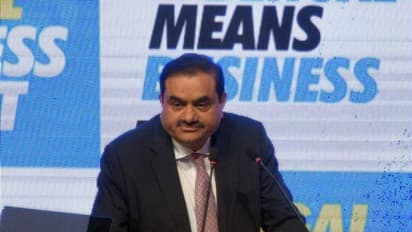Adani-Hindenburg row: Supreme Court refuses to intervene in SEBI probe, rejects petitions

Synopsis
The Supreme Court verdict came on petitions seeking an investigation into fraud allegations against Adani Group. The accusations, outlined in a Hindenburg Research report, had suggested artificial inflation of share prices, leading to a substantial drop in Adani companies' valuation
The Supreme Court delivered a significant relief to the Adani Group on Wednesday, asserting its inability to intervene in the regulatory domain. The court stated that reports such as those from Hindenburg cannot serve as the basis for ordering a separate investigation. The Securities and Exchange Board of India (SEBI) is authorized to proceed with its probe in accordance with the law. The court emphasized that there is no evidence indicating SEBI's negligence in taking necessary actions.
This decision follows a series of petitions urging an inquiry into alleged fraudulent activities linked to the Adani Group, as detailed in the Hindenburg Research report. Last November, Chief Justice of India (CJI) DY Chandrachud, alongside Justices JB Pardiwala and Manoj Misra, had reserved the verdict after hearing arguments on the matter.
Delhi CM Arvind Kejriwal skips 3rd ED summons, AAP says 'conspiracy to arrest him'
The allegations in question pertain to claims that Adani artificially inflated its share prices. The publication of these allegations, as part of a report by short-seller Hindenburg Research, reportedly led to a substantial drop in the share value of various Adani companies, estimated at around $100 billion.
Several petitions, including one contending that amendments to the Securities and Exchange Board of India Act (SEBI Act) shielded Adani Group from regulatory contraventions and market manipulations, were subsequently filed before the Supreme Court. In response, the Court directed SEBI to conduct an independent investigation and formed an expert committee headed by retired Justice AM Sapre to scrutinize the matter.
The expert committee, in its report released in May, found no prima facie lapse on SEBI's part. However, the petitions persisted, leading to the current phase where the Supreme Court is set to unveil its verdict.
During the November 24, 2023 hearing, Solicitor General Tushar Mehta argued that media reports were being strategically planted to influence India's decisions. He highlighted a concerning trend of external narratives attempting to sway domestic actions, citing the OCCRP report as an example.
Delhi Police gears up, forms committee to study and train new laws
The Court, in response, emphasized that SEBI's decisions should not be influenced solely by media reports, underscoring the need for an independent and objective assessment of the allegations against Adani Group. The awaited verdict will shed light on the legal implications of the fraud allegations and their potential impact on regulatory oversight.
Stay updated with the Breaking News Today and Latest News from across India and around the world. Get real-time updates, in-depth analysis, and comprehensive coverage of India News, World News, Indian Defence News, Kerala News, and Karnataka News. From politics to current affairs, follow every major story as it unfolds. Get real-time updates from IMD on major cities weather forecasts, including Rain alerts, Cyclone warnings, and temperature trends. Download the Asianet News Official App from the Android Play Store and iPhone App Store for accurate and timely news updates anytime, anywhere.